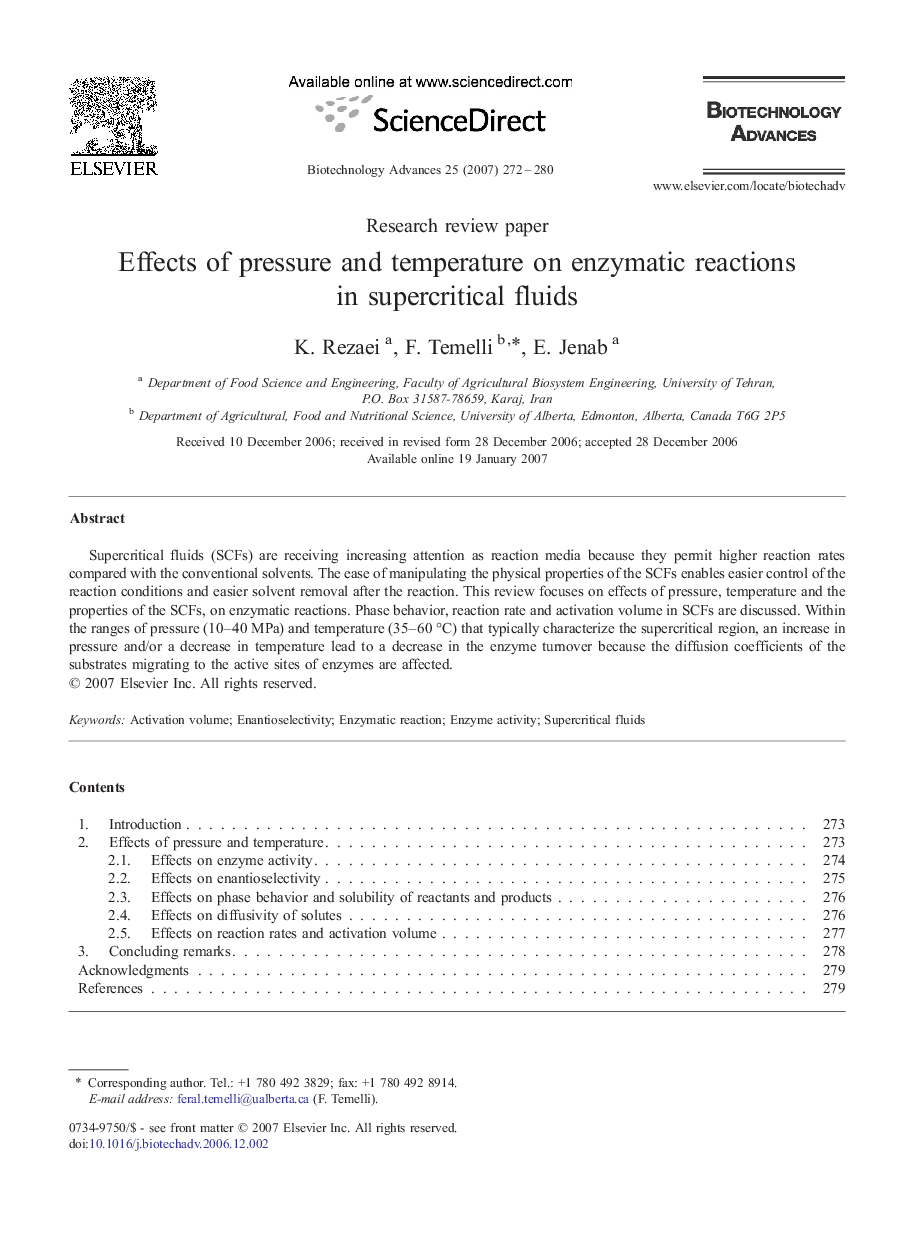| Article ID | Journal | Published Year | Pages | File Type |
|---|---|---|---|---|
| 14835 | Biotechnology Advances | 2007 | 9 Pages |
Supercritical fluids (SCFs) are receiving increasing attention as reaction media because they permit higher reaction rates compared with the conventional solvents. The ease of manipulating the physical properties of the SCFs enables easier control of the reaction conditions and easier solvent removal after the reaction. This review focuses on effects of pressure, temperature and the properties of the SCFs, on enzymatic reactions. Phase behavior, reaction rate and activation volume in SCFs are discussed. Within the ranges of pressure (10–40 MPa) and temperature (35–60 °C) that typically characterize the supercritical region, an increase in pressure and/or a decrease in temperature lead to a decrease in the enzyme turnover because the diffusion coefficients of the substrates migrating to the active sites of enzymes are affected.
